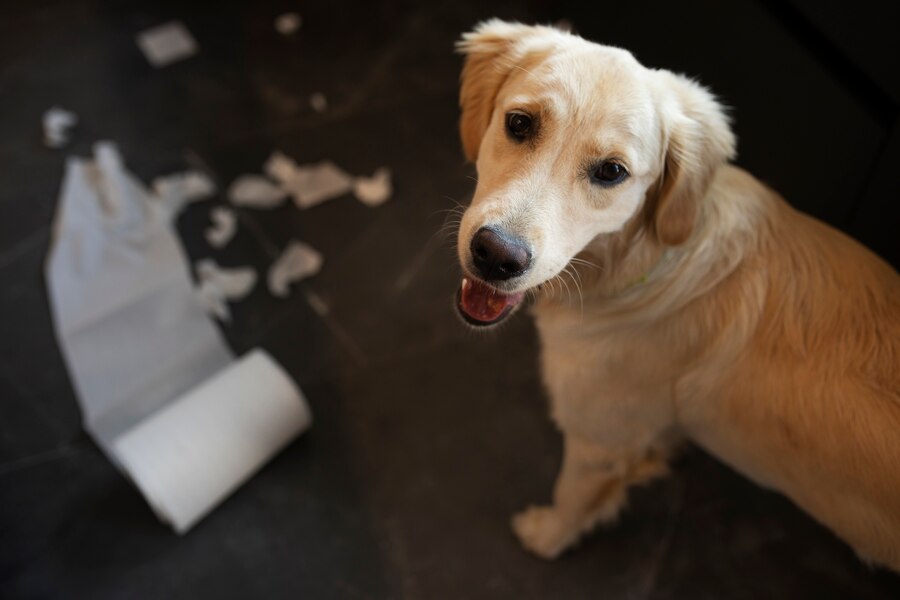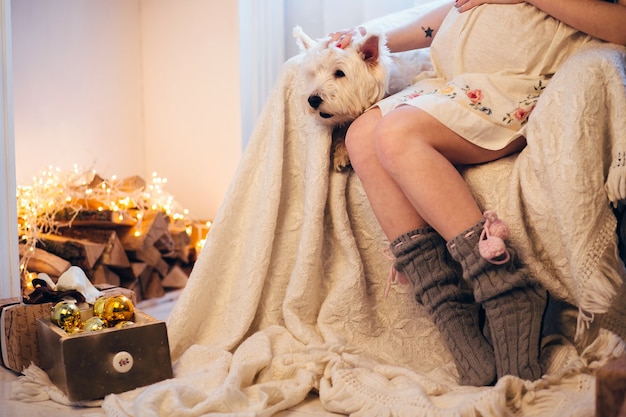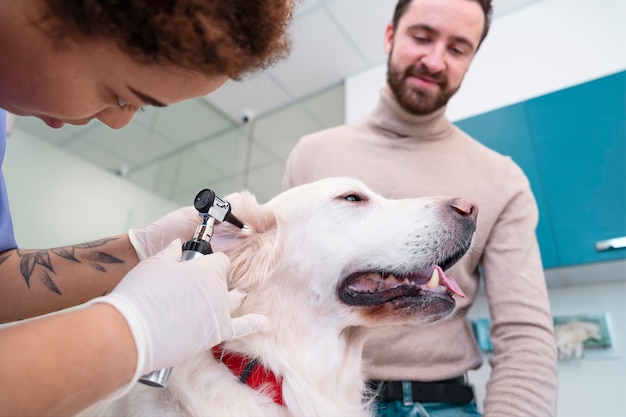How to Help Your Anxious Pet: Understanding Pet Anxiety: Symptoms, Causes and Treatments

How to Help Your Anxious Pet: Understanding Pet Anxiety: Symptoms, Causes and Treatments
Pet anxiety is a common problem affecting both pets and their owners. Pets, like humans, can suffer anxiety, which can have a substantial influence on their quality of life. At Pets4Life Animal Hospital, we are dedicated to assisting pet owners in understanding and managing pet anxiety so that their furry friends can enjoy happy, healthy lives.
Symptoms of Pet Anxiety
If you notice any of the following behaviors, they could be symptoms that your pet is experiencing anxiety.
1. Excessive Barking/Meowing or Licking:
- Pets frequently express their sadness or stress through excessive barking or meowing, particularly when their owners are not there. Also when anxious they may excessively lick themselves which can cause abrasions or wounds.
2. Destructive Behavior:
- Anxiety may also lead animals to chew on furniture, scratch walls, or break household goods. This activity is frequently a coping method for stress and not only damages your home but can cause physical harm to your pet.
3. Pacing or Restlessness or drooling:
- Anxious pets may exhibit restlessness, pacing back and forth, or have trouble settling down or even drooling.
4. Changes in Appetite:
- Anxiety can cause a decrease or an increase in appetite. Pets may refuse to eat or overeat in response to stress.
Causes of Pet Anxiety
There are many possible causes of anxiety for pets. Sometimes addressing or protecting your pets from these causes can help alleviate your pet’s stress.
1. Separation Anxiety:
- One of the most frequent types of anxiety in pets is separation anxiety. This happens when pets get overly connected to their owners and are distressed when left alone. Consider ways to avoid long periods of extended absence with walkers or visitors, and toys that help stimulate your pet's brain and enrich their environment in your absence.
2. Loud Noises:
- Thunderstorms, fireworks, and other loud noises can cause anxiety in pets. The rapid, unpredictable nature of these sounds might be intimidating for animals. Call your vet to be prepared before holidays such as 4th of July to help your pet on this celebration that can cause stress for your pets.
3. Changes in Environment:
- Moving to a new house, changing routines, or welcoming new family members (including pets) can all induce anxiety. Pets thrive on constancy and can feel frightened when their surroundings change. Try to keep some familiar things for your pet even in the face of change.
4. Past Trauma:
- Pets with a history of abuse or neglect or have been surrendered are more likely to be anxious. Their past trauma from these earlier experiences can be helped - talk with your vet about options that might be good for your pet.
5. Health Issues:
- Medical issues or prolonged pain might cause anxiety. Pets may become worried if they are in pain or their mobility is limited.
Solutions for Pet Anxiety
1. Create a Safe Space:
- Designate a calm, cozy spot in your home where your pet can retire when he or she feels anxious. This space should be free of loud noises and interruptions. Sometimes a closet or basement is a good space because it is dark and cozy and might be difficult to hear loud noises. Some dogs respond well to crating as a safe space for them.
2. Consistent Routine:
- Maintain a constant schedule for eating, walking, and playing. Predictability reduces anxiety in pets by giving them a sense of stability.
3. Physical and Mental Activity:
-Pets need not just physical activity but also mental stimuli, such as training, walks (vs just playing in the yard alone), social activities (with pets and/or humans) and sensory toys.
4. Professional Help:
- If your pet's anxiety is not resolved through these treatments, you should contact a veterinarian for more personalized advice and specialized training therapies, as well as possible medications.
If you suspect your pet is suffering from anxiety, contact Pets4Life Animal Hospital by calling (847) 434-2745 or visiting us at 661 Central Avenue Highland Park, IL 60035. Our experienced veterinarians are here to help you develop a personalized plan to manage and reduce your pet’s anxiety.






